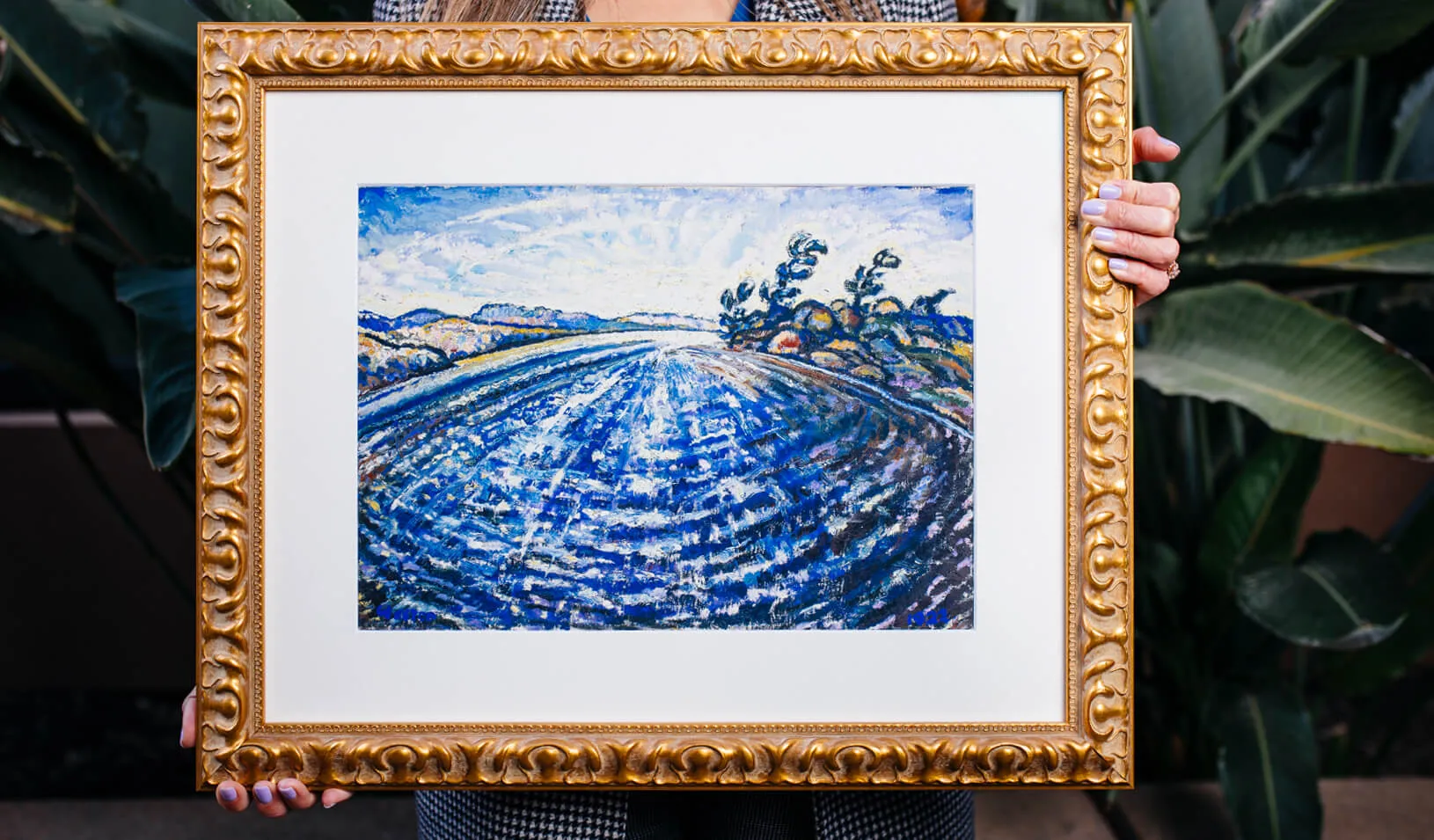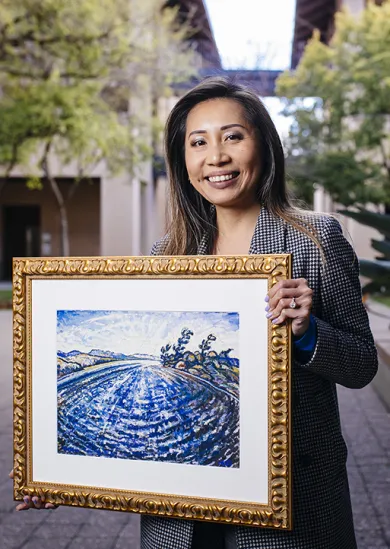
Stanford GSB marketing professor Szu-Chi Huang displays her reproduction of the 1922 Harold Weston painting, titled “Winds, Upper Ausable Lake,” that hangs in her office. | Elena Zhukova
I’ve had this painting for about five years. It’s a reproduction; the original, called Winds, Upper Ausable Lake, is by Harold Weston and is in the Phillips Collection in Washington, D.C., which is where I first saw it.
Editor’s Note
In this series, we visit faculty offices and ask Stanford GSB professors to tell the stories behind one of the knickknacks on their shelves.
Szu-chi Huang is an associate professor of marketing and a PhD faculty liaison at Stanford GSB.
The painting portrays a lake, and in the reflection of the water, you can see the movement, which is why it’s called Winds. The element of water resonates with me, because I grew up in Taiwan, which is an island. It’s almost as if I have a piece of my hometown in my office.

Szu-Chi Huang | Elena Zhukova
But the painting also connects with my love of art, which is another part of home for me. When I was growing up, my father was manager of a small art gallery that was located in the same building as our home. I was surrounded by all sorts of paintings — from Western art to oriental, from classical to modern. We didn’t have a lot of money for entertainment when I was young, so my parents would take me and my brother to see museums, and we would look through art books together. My mother teaches classical music, so art and music were the big influences for us. My brother actually took up art as a profession and became an illustrator of children’s books and a photographer of LGBTQ communities in Asia.
I love art, too, but I can’t draw. So instead, I worked in the advertising industry. I chose that because it includes an element of art and creativity, and also business. That eventually led to me getting a master’s degree in advertising and a PhD in marketing.
To me, marketing also is a kind of art. It reflects how our society evolves and communicates, and how it connects people. The packaging of a product, the advertising, the storefront — all tell a story. It’s more like an interactive and dynamic art exhibit than a painting. But I think marketing is the most artistic aspect of business.
I love marketing, and I’m glad I picked it as my career, but art still influences me. Whenever I travel to an academic conference, I always make time to visit whatever museums are in that city. Art has the ability to transport me to a different place. It helps me to think outside the box, to imagine, and to conceptualize new theories.
Recently I’ve been working on a collaboration with UNICEF on how images that are digitally altered can affect how children think about beauty. These are mostly images from advertising, or ones that social media influencers post about themselves. Those altered images, designed to shape consumers’ behaviors, are really the opposite of what artists are trying to do when they paint. When we are moved by a painting, we feel a real connection with the artist and experience their “truth.” I hope my interest in art gives me a unique perspective to understand both the positive and negative influences of art in marketing.
— Told to Patrick J. Kiger
For media inquiries, visit the Newsroom.



